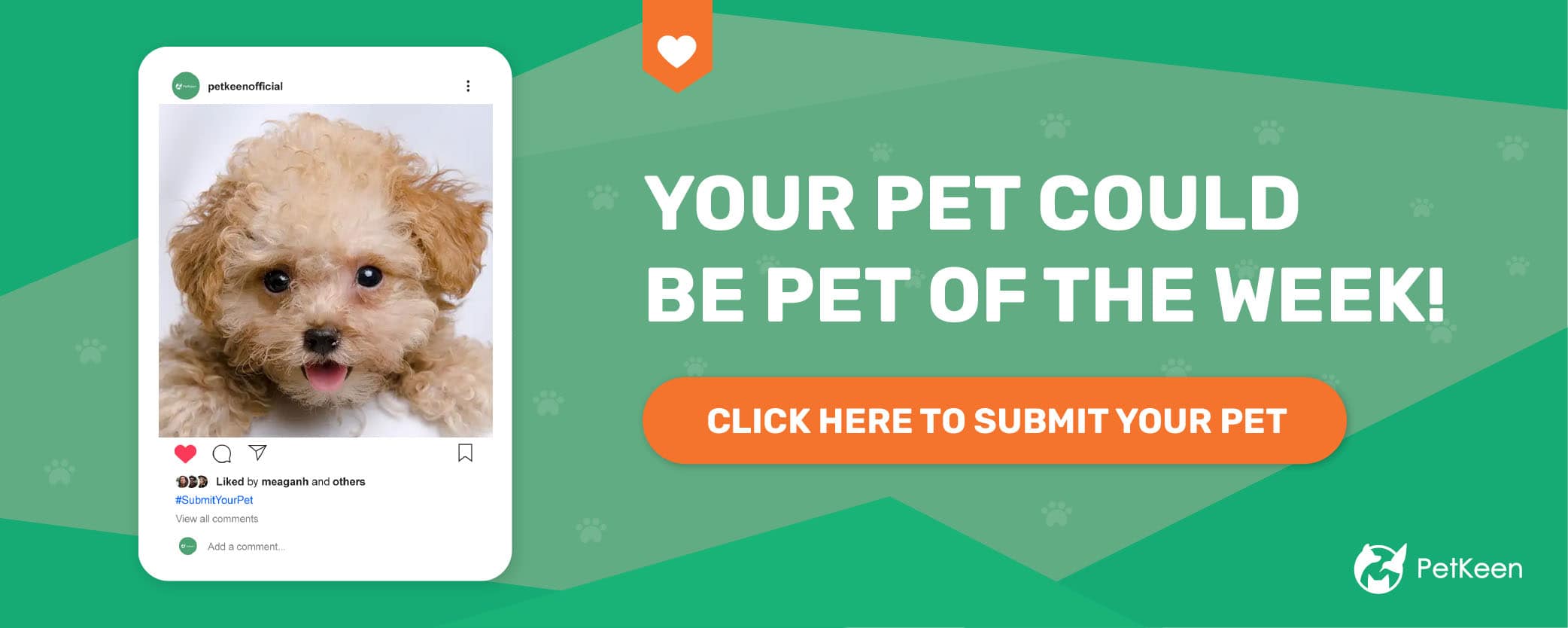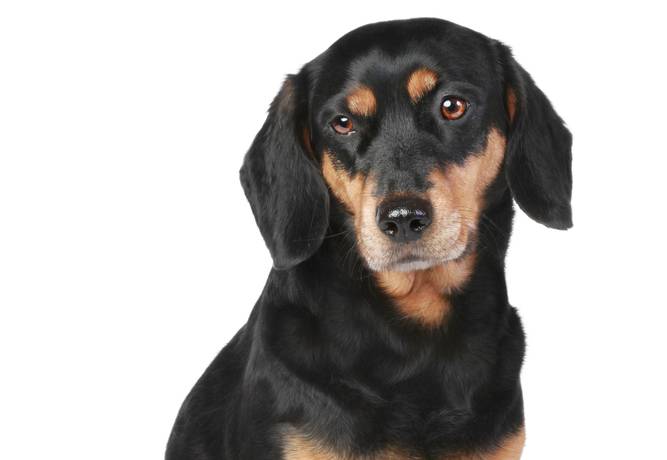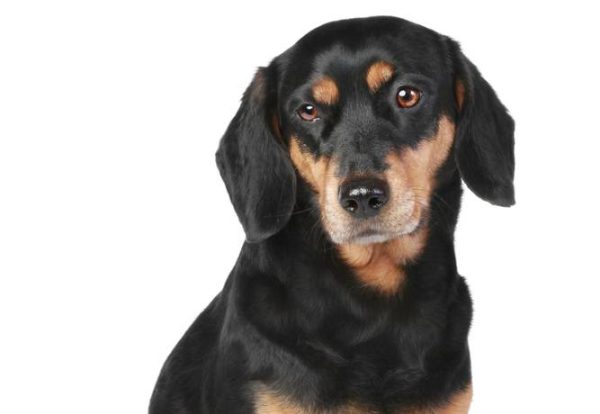Click Below to Skip Ahead
The Latvian Hound is a small to medium-sized hunting dog from the country of Latvia. While not widely known outside of Eastern Europe and Russia, fans of smart and lively dogs will appreciate this handsome breed.
“Latvian Hound” is a modern name for an old dog breed. This breed originated in the Duchy of Courland in the 17th century before the nation of Latvia existed.
Breed Overview
Height:
15–20 inches
Weight:
33–36 pounds
Lifespan:
12-14 years
Colors:
Black and tan
Suitable for:
Active families, families with children, agility and obedience trials
Temperament:
Loyal, friendly, intelligent, easy to train
Before the 1970s, when the modern Latvian Hound breed was registered, this dog was known as the Courland Hound (or the Kurzemes Hound in Latvian).
From its origins to the present day, the Latvian Hound has always been a prized hunting dog. They are trained to follow the scent of animals like deer, rabbits, and wild boar, and then drive them towards the hunters.
Intelligent and hardworking, the Latvian Hound can be a fully trained hunting dog as early as 6 months of age.
 Latvian Hound Puppies
Latvian Hound Puppies
Interested in a Latvian Hound puppy? Finding one outside of the breed’s home region can be a challenge.
The American Kennel Club does not recognize the Latvian Hound breed, and many of the existing Latvian Hound breed clubs and breeders are in Eastern Europe.
It is possible to import dogs from abroad, but this might require a good amount of research and patience. Buyers should also be prepared to factor in the costs of acquiring a rare breed puppy.
Temperament & Intelligence of the Latvian Hound
Are These Dogs Good for Families?
Latvian Hounds can be a good breed for active families with children. Like other hunting dog breeds, they tend to be very trainable and eager to please. They also have enough stamina and energy to keep up with the most active children.
Does This Breed Get Along with Other Pets?
Like other hounds, the Latvian Hound has been trained to hunt game in groups, and they get along well with other dogs.
Hunting dogs can have a reputation for not getting along with cats and other small animals, but all dogs are individuals, so good training and proper introductions to other animals in the home are key.
 Things to Know When Owning a Latvian Hound:
Things to Know When Owning a Latvian Hound:
Food & Diet Requirement
Feed your dog a high-quality diet appropriate for its life stage (puppy, adult, senior).
Your Latvian Hound should do well on 2 feedings a day. Total calorie consumption (including treats) depends on your dog’s body condition and activity level.
Generally, a medium-sized dog like the Latvian Hound requires around 550 calories per day, but it’s always a good idea to check with your veterinarian for specific nutritional advice.
Exercise
The Latvian Hound is an energetic dog with a lot of stamina. They were bred to cover long distances tracking down game animals and driving them towards their owners, so getting enough exercise is important.
Dogs bred to hunt, herd, and work appreciate plenty of stimulating play and exercise. Your Latvian Hound will need a minimum of 1 hour of exercise per day.
Keep in mind that Latvian Hounds were bred to hunt in groups, so interactive exercise with you or other dogs is key to keeping them happy and healthy.
Like other hard-working dog breeds, the Latvian Hound can also benefit from organized canine activities like agility and obedience trials.
Training
Latvian Hounds are intelligent and very trainable. Experts stress the importance of obedience training with this energetic and somewhat vocal breed.
Start training and socializing your dog from a young age, always using positive reinforcement training techniques.
Grooming ✂️
The Latvian Hound has a distinctive and low-maintenance black and tan coat. The coat is short and straight with no undercoat.
Your dog will not need coat trimming, and a bath once every 6-12 weeks should be fine.
Brush your dog with a curry brush to maintain its healthy skin and coat. Once every few days is enough, but you can increase it to every other day if you notice shedding.
Get your Latvian Hound used to regular nail trimming and tooth brushing, starting at an early age.
The Latvian Hound has floppy ears, so regular ear cleaning is essential. Drop-eared dogs like the Latvian Hound can be prone to ear infections.
Keep your dog’s ears dry and clean and be sure to talk to your vet if you suspect that your dog has an ear infection.
Health and Conditions
Latvian Hound enthusiasts report that the dogs do not have any major breed-specific health issues.
Because they are rare and not often found outside of their native area, health information on Latvian Hounds can be hard to come by.
Generally, most dog breeds do have at least a few inherited health conditions.
Since the modern Latvian Hound breed was reestablished using a relatively small group of founder dogs, it is possible that one or more of those dogs did have a genetic disease that has been passed on to subsequent generations.
We also know that Beagles were used to supplement the limited number of Latvian Hounds when the breed was expanded. The Beagle’s health issues are well documented.
Another clue is genetic testing. At least one veterinary school genetics testing laboratory has identified a handful of DNA health tests for the Latvian Hound.
Here are the health conditions we may be able to attribute to the Latvian Hound.
- Hip dysplasia
- Otitis externa
- Progressive rod-cone degeneration
- Hyperuricosuria
- Degenerative myelopathy
- Musladin-Leuke Syndrome
Minor Conditions
- Hip dysplasia: An abnormal hip joint condition common in the Beagle and many other dog breeds.
- Otitis externa: Ear infection, often seen in breeds with large floppy ears.
Serious Conditions
- Progressive rod-cone degeneration: An inherited genetic eye disease that could lead to blindness.
- Hyperuricosuria: Excessive uric acid secretion which can lead to bladder and kidney stones as well as urinary blockages in males.
- Degenerative myelopathy: A neurodegenerative disease that causes muscle weakness and eventually paralysis.
- Musladin-Leuke Syndrome: A genetic connective tissue disorder found in the Beagle.
Male vs Female
Are there differences between male and female Latvian Hounds?
When it comes to size, male animals tend to be larger than females, a phenomenon that is known as sexual dimorphism. This size difference is more noticeable in large breed dogs than in small and medium-sized dogs.
In Latvian Hounds, males tend to be slightly taller and heavier than females, but as a medium-sized breed, the difference is small.
Every dog is an individual, so it can be tricky to assign personality traits to a dog based on sex. Good training and spay/neuter also play large roles in a dog’s behavior.
Very generally, female dogs can be easier to train than males. Males that are not neutered tend to be more dominant, independent, and aggressive. Neutering a male dog can eliminate many unwanted behaviors.
3 Little-Known Facts About the Latvian Hound
1. The Latvian Hound almost disappeared during World War II.
The Latvian Hound nearly went extinct during the difficult years between the two World Wars. After World War II, breed enthusiasts searched Latvia for the few remaining dogs and worked to reestablish the breed.
2. Duke Jacob of Courland is credited with founding the breed.
Jacob, the Duke of Courland, is said to have created the breed in the 1600s for local hunters in his duchy. He was known as a fair ruler who implemented many beneficial agricultural and industrial reforms.
3. The Latvian Hound has Bloodhound and Beagle ancestry.
The earliest Latvian Hounds are thought to have Bloodhound ancestry. After the breed almost died out in the mid-1900s, Beagles were used to supplement the limited Latvian Hound breeding stock.
 Conclusion
Conclusion
The Latvian Hound has a long and fascinating history. The breed has been a loyal companion of hunters for hundreds of years.
Many of them are still happily employed as hard-working hunting dogs in Latvia and other Eastern European countries.
While many dog lovers find the Latvian Hound appealing and intriguing, obtaining one as your next pet can be a challenge. Unfortunately, this dog is rare outside of its home region.
Other rare dog breeds from around the world have gained popularity in recent years, so hopefully, this unique dog won’t be Latvia’s best-kept secret for long!

Related Read:
Featured Image: Jagodka, Shutterstock










